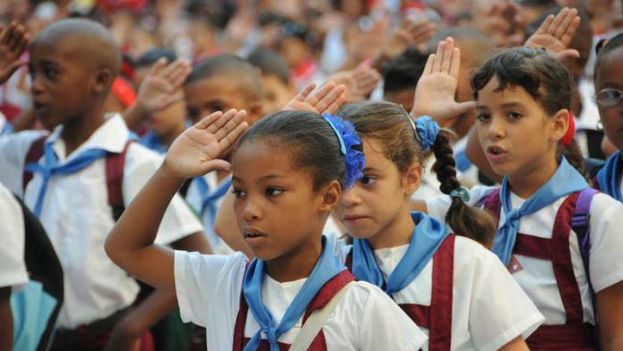 I disagree with what you say,
I disagree with what you say,
I totally disagree with it,
but I would defend with my life your right to say it.
Voltaire
Yoani Sanchez, Generation Y, 22 November 2011 — I press the headset until it almost touches my eardrums, but still the music in the collective taxi is pounding in my head. It’s the third time today I’m forced to hear the same song, a lascivious reggaeton capable of making those of us riding in that 1950s Ford blush. The most popular song has won the fanaticism of some, the repulsion of others and even a strong critique by the minister of culture, Abel Prieto, on national television. It would seem that no one can remain unmoved, tranquil, while listening to that “Dame un chupi chupi, que yo lo disfruti, abre la bocuti, trágatelo tuti*.” Either you wiggle your hips or you cover your ears, there’s no middle ground.
The El Chupi Chupi video has been nominated for a Lucas Prize, but a few days ago it was categorized as “horrible” by the president of the Cuban Music Institute himself. The many fans of the composer Osmani Garcia and his controversial lyrics don’t know if he will remain in the competition and the media has almost stopped airing the song. Hundreds of people have already sent in their votes — via text messages — in favor of giving the popularity award to this reggaeton artist. They hope to dance to his creation during the gala this coming Sunday at the Karl Marx theater. But a television presenter declared — half joking half serious — that “there will be no ‘honey nor caramels’ at the event this weekend… because they’re bad for your teeth,” in a clear reference to the likelihood of presenting the controversial rhythm with its direct sexual allusions.
If all of the television, newspapers and radio in Cuba were not the private property of the one political party, there would also be space for these kinds of productions, even though many don’t like them. The current problem is that if national television broadcast it, it would be as if it had the endorsement of the Cuban Communist Party (PCC) itself, as if the entire political discourse would have to recognize that its “New Man” is more interested in amusing and lewd tunes than in the anthems of the working man and songs about utopia. I am confident that some day there will be stations devoid of ideology, that in adult programming they will present topics far beyond melodic preferences or the blushing point that everyone accepts. Controversy will arise, of course, and generate debate, but no public official will be able to erase it with the stroke of a pen, because musical tastes don’t change through censorship. If they doubt it, let them climb into a collective taxi in Havana right now.
Translator’s note: Roughly: “Give me a suck, which I enjoy, open that little mouth, and swallow it all.”


